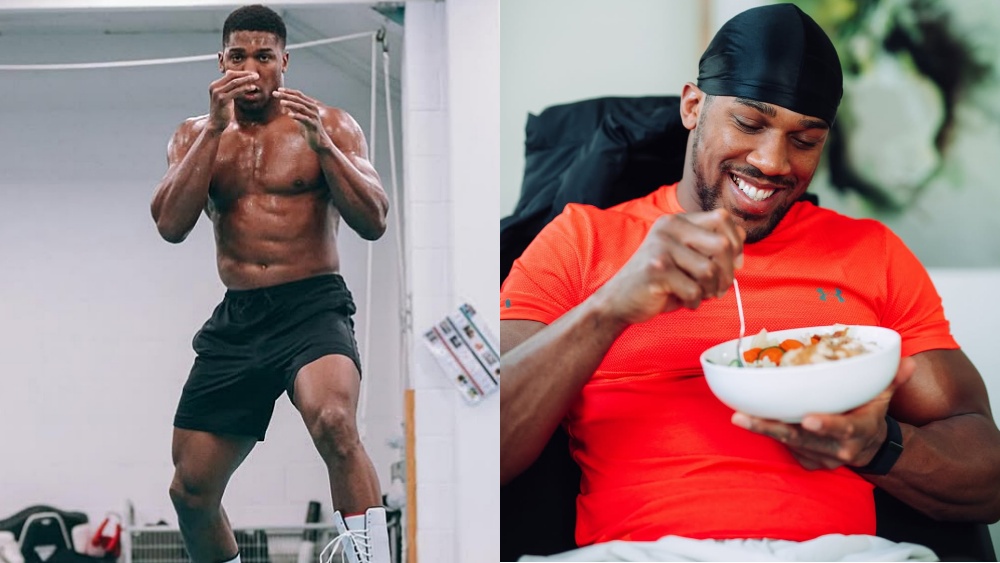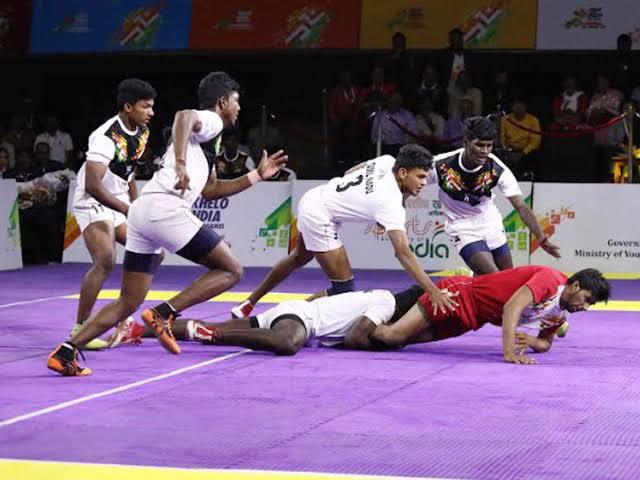
Combat sports like Brazilian Jiu-Jitsu, Muay Thai, boxing, wrestling, and MMA push athletes to their physical and mental limits. Success in these disciplines doesn’t just come from skill and conditioning but also from proper nutrition. Even the most skilled fighters struggle with their fight performance without the right fuel.
Nutrition plays a big role in enhancing endurance, strength, and overall athletic ability. Combat athletes need a diet that supports rigid training schedules while promoting recovery and longevity in their chosen sport.
With the right nutritional strategies, athletes can improve their performance and thus gain an upper hand before the battle starts. Today, we’ll discuss several nutrition hacks you can do as a martial artist.
Nutrition As Fuel For The Body
Movements in combat sports require a lot of energy. Regardless of your chosen martial art, the body relies on stored fuel to function optimally. That ‘fuel’ comes from the food consumed daily.
Food is more than just calories; it provides the essential macronutrients along with vitamins and minerals needed to sustain our energy levels and aid recovery. Carbohydrates supply quick energy, proteins repair and build muscles, and healthy fats support overall endurance and brain function.
By focusing on high-quality foods that nourish the body, combat athletes can sustain energy throughout intense training sessions as well as minimize potential setbacks. Understanding what to eat and when to eat is the key to maximizing physical and mental performance in combat sports.
The Physical Demands Of Combat Sports
Unlike traditional fitness routines, combat sports require explosive movements, sustained endurance, and a high level of coordination. Athletes engage in anaerobic and aerobic activities, requiring short bursts of power and long stamina. This level of exertion takes a toll on the body and is a factor in performance and recovery.
Training multiple times a week demands more than intense effort; it requires strategic fueling. Without proper nutrition, athletes can experience delayed recovery and potential setbacks. Poor eating habits can lead to inflammation, muscle soreness, and reduced mental focus, all of which negatively impact performance inside the gym or the ring.
Proper Nutrition And Combat Sports
Combat athletes must carefully balance their macronutrient intake while ensuring they get enough micronutrients that support joint health, immune function, and hydration.
Protein is crucial for muscle recovery, especially after intense sparring sessions or strength training. Carbohydrates should be carefully managed to provide sustained energy without leading to sluggishness or excessive weight gain. Fats should come from healthy sources like nuts, avocados, and fish, aiding inflammation control and joint mobility.
Hydration is another critical aspect often overlooked. Water and electrolyte balance play a massive role in maintaining endurance, preventing cramps, and supporting cognitive function during fights.
Benefits Of Optimal Nutrition
When combat athletes prioritize their nutrition, they experience noticeable improvements in their performance and overall health. Proper nutrition leads to increased endurance, which allows fighters to sustain energy throughout long sparring rounds. Strength and muscle recovery are enhanced, reducing downtime due to soreness or other physical constraints.
Another significant benefit is mental clarity. The brain needs proper nutrients to function at a high level, especially in a sport where quick decision-making can mean the difference between victory and defeat. A well-balanced diet also supports a healthy metabolism, helping athletes maintain their ideal weight for their respective divisions.
8 Nutrition Hacks For Combat Athletes
Combat athletes don’t need to overhaul their entire diet overnight. By implementing simple and sustainable nutrition hacks, they can slowly improve their eating habits and maximize performance.
1) Prioritize Whole Foods
Avoid processed foods and refined sugars that lead to energy crashes. Instead, focus on whole, nutrient-dense foods such as lean meats, vegetables, fruits, whole grains, and healthy fats. Eating clean, unprocessed foods helps reduce inflammation and promotes better recovery.
2) Eat Balanced Meals Throughout The Day
A good meal should contain a mix of lean protein, complex carbohydrates, and healthy fats to provide steady energy levels. Doing this eating strategy prevents overeating and supports better muscle recovery.
3) Time Carbohydrates Around Training
Carbohydrates are essential for fueling high-intensity workouts, but they should be consumed strategically. Eat complex carbs like sweet potatoes, brown rice, or whole wheat bread before training for sustained energy. After workouts, replenish glycogen stores with simple carbohydrates like fruits or honey.
4) Stay Hydrated And Replenish Electrolytes
Dehydration can negatively impact endurance and cognitive function. Combat athletes should drink water consistently throughout the day. Adding natural electrolyte sources like coconut water or sea salt to water helps maintain hydration levels, especially during intense sweat-inducing sessions.
5) Increase Protein Intake For Recovery
Protein is important for muscle repair and recovery. Combat athletes should consume high-quality protein sources such as chicken, fish, eggs, lean beef, and plant-based proteins. Adding protein shakes can help accelerate muscle repair and growth.
6) Include Healthy Fats For Joint Health
Healthy fats play a crucial role in reducing inflammation and maintaining joint health. Incorporating sources like salmon, nuts, seeds, and olive oil into the diet helps combat the wear and tear that comes with combat sports training.
7) Get Enough Sleep For Recovery
Recovery also plays a crucial role in overall health. Sleep is when the body repairs itself, producing growth hormones that aid in muscle recovery. Aim for at least 7-9 hours of quality sleep per night to ensure optimal performance.
8) Supplement Wisely
While whole foods should always be the foundation of nutrition, supplements can help fill gaps in the diet. Combat athletes may benefit from omega-3 fatty acids, vitamin D, creatine, or BCAAs. However, supplements should never replace real food; rather, they should complement a well-rounded nutrition plan.
Focus On Sustainability
The key to successful nutrition is sustainability. Many athletes fall into the trap of extreme dieting, cutting too many calories, or following trends that aren’t sustainable long-term. Instead of drastic changes, combat athletes should aim for gradual improvements that fit their lifestyles.
Consistency is more important than perfection. Developing healthy habits over time ensures that fighters maintain peak performance without feeling deprived or overly restricted.
Long-Term Planning
Thinking long-term is essential for combat athletes who want to perform at a high level for years. Nutrition should not just be about short-term weight cuts or competition prep but about maintaining overall health and longevity in the sport.
A long-term approach involves proper meal planning, smart supplementation, and listening to the body’s needs. Fighters who invest in their nutrition today will have an advantage in both training and competition in the future.
Conclusion
By understanding the role of food as fuel, combat athletes can optimize their energy levels, improve recovery, and maintain a healthy weight. Remember that nutrition is a key piece of the puzzle in athletics. With a well-structured nutrition plan, combat athletes can push their limits safely and intelligently.
You may also like:
Morning Training vs. Evening Training: What’s Best For Your Body And Goals?
Combat sports demand a fluid synergy of raw power, speed, mobility, balance, and agility. Animal movements are one of many ways fighters can strengthen their bodies to perform optimally. These exercises involve mimicking the movements…
Martial arts training is intense. It demands strength, endurance, flexibility, and mental focus. Whether practicing Brazilian Jiu-Jitsu, Muay Thai, boxing, wrestling, or MMA, the sheer physical and mental exertion required takes a toll on the…
Running has historically been a considerable portion of many martial arts fighters’ training regimens, but it’s not the only way to get your heart pumping and build up your cardiovascular endurance. Many non-traditional workouts challenge…
High-intensity training is one of the best and most effective ways to reach your fitness goals, whether for general health or conditioning as a martial artist. It helps push your mind and body to the…
Juggling work obligations, family responsibilities, and martial arts training can be challenging. Micro workouts are one of the ways people with busy schedules keep their bodies in excellent shape without spending hours at the gym….
When working out, the ketogenic diet has enjoyed lots of popularity in recent years as a growing number of people swear it has transformed their lives. It’s an easy diet for most to get behind;…
Brazilian Jiu-Jitsu is always evolving, with grapplers constantly finding new ways to blend techniques. Two skills that have gained popularity in modern No-Gi grappling are wrestle-ups and leg locks. At first glance, they seem like…
Have you ever heard that voice that says, “Maybe I should get my backside off the couch and do something cool?” MMA could be the fun new activity you’re looking for. No, training won’t turn…
Finally, the school holidays are around the corner! Busy parents, don’t tear your hair out if your children are at home. There are more ways to keep them entertained besides Netflix’s selection of children’s TV…
One Muay Thai Flyweight superstar, Rodtang Jitmuangnon, is set to face Japan’s kickboxing superstar, Takeru Segawa, in a Flyweight Kickboxing super-fight on March 23 at ONE 172 in Japan’s Saitama Super Arena. They are among…
The back is the most dominant position in grappling sports such as Brazilian Jiu-Jitsu, Submission Grappling, and Mixed Martial Arts, both in the stand-up and on the ground (back mount). In the stand-up, it allows…
Becoming a great fighter in martial arts requires more than strength, speed, or endurance—you must also be smart. While most martial artists typically aren’t viewed as the most cerebral members of society, there are clear…












